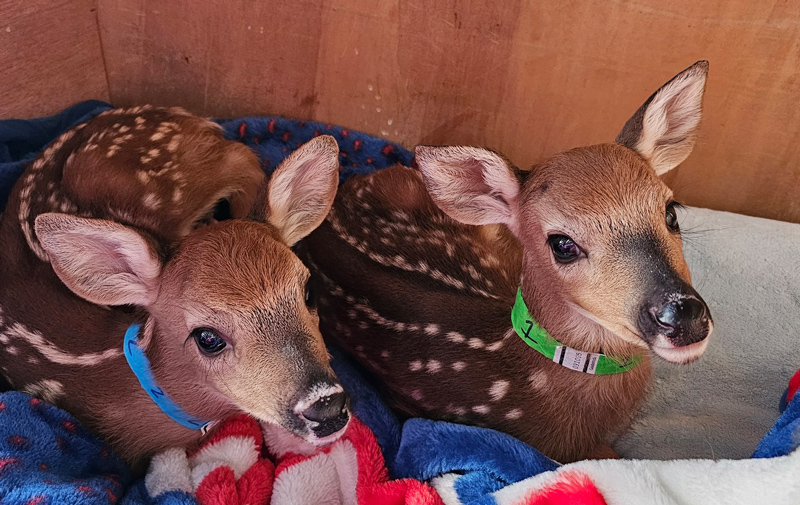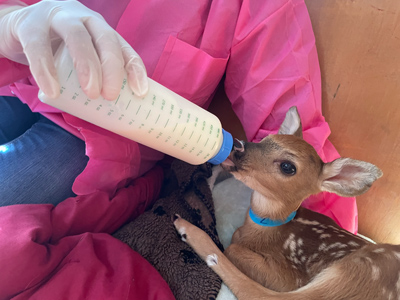
First Fawns of the 2024 Baby Season
It is officially fawn season here at Northwoods Wildlife Center, as we admitted our first fawns of the year a little over a week ago. These two fawns were found by someone passing by, lying by their mother. The mother died after being hit by a car, so the finder called us, and we admitted them into our care.
Upon admission, it was clear these fawns were traumatized. They were not very eager to eat right away, and we were worried about one of them because they started losing weight. But experience has taught our rehabbers how to handle situations like these, and we soon had them both eating and gaining weight. They are now doing well and living in one of our new fawn yards, where we will keep them safe and healthy in preparation for release back to the wild this September.

During this time of year, it is especially important to understand the behavior of whitetail deer mothers and their fawns, specifically how to tell if a fawn is okay or needs help. Did you know that a doe will hide her fawns in tall grass or brush and will keep her distance from her young to help reduce the chance of catching a predator’s attention? Fawns instinctively lay quietly while their mother keeps her distance. The spots on the fawns’ back resemble sun spots on the forest floor, providing excellent camouflage. The doe returns when she doesn’t feel threatened, and if she senses a predator nearby, it may take 24 hours
for her to return. Even though a fawn alone is a natural occurrence, there are times when a fawn truly does need help, such as:
- The fawn is seen next to their dead mother.
- The fawns coat looks unkept or ungroomed.
- The fawn has an obvious injury, such as a broken, exposed bone or open wounds.
- If the fawn’s butt is matted with feces, this means that mom has not been there for a while to clean her
fawn. - If you observe a fawn with maggots, it needs help, especially if the maggots are near its
rectum, as this indicates they have made their way into the GI tract. - Fawns will cry out at times for their mom, even when healthy, but if you have been keeping your
distance from the fawn so that mom will come back and the fawn has still been crying out for over 24 hours,
it is time to call your local wildlife rehabilitator.
If you find a fawn on its own, please do not take it without going through the list above. If you are still unsure if the fawn is okay, leave it where it is and call your local wildlife rehabilitator for advice.